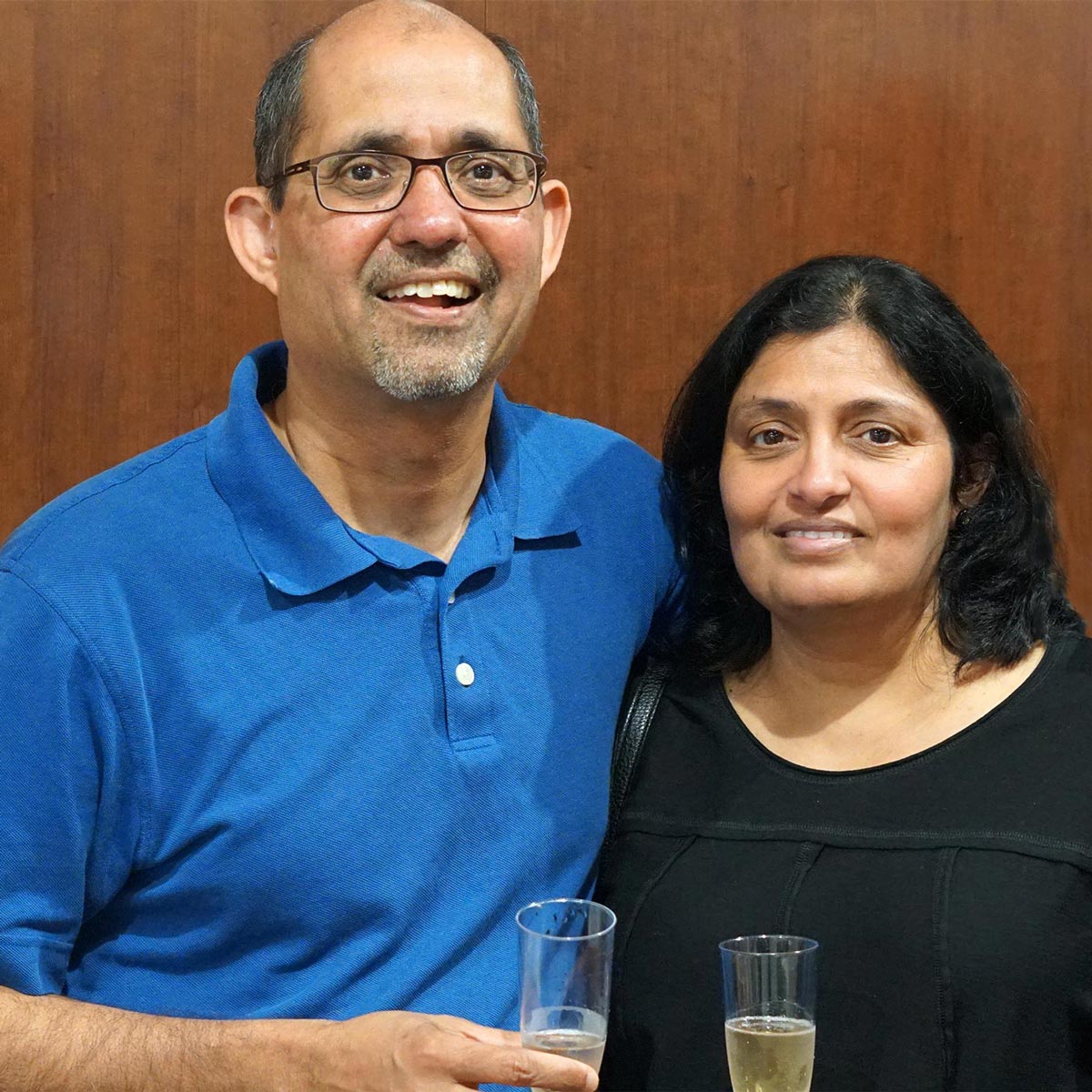
Nag Rao Is Changing America’s Landscape
By Colm Quinn
A little over two years ago, engineer, entrepreneur, and RMI donor Nag Rao decided to sell his successful enterprise software company to build commercial-grade electric lawnmowers. When asked what led him to make this surprising shift, Rao says, point blank, “Climate change.”
“I feel culpable,” he says. “I feel like it's my duty. I was part of the problem that created this, and I feel very guilty. When my daughters are talking about not having kids — It just bothers me that we’ve brought the planet to this state.”
Rao’s all-in commitment wouldn’t have been much of a surprise to anyone who knows him. His love of the natural environment is lifelong. Growing up in his native India, Rao tended to fruit trees and grew vegetables, a passion that sparked his interest in studying science. He’s a devoted vegetarian (even eschewing rice for its climate impact). He takes great pride in his purpose-built, sustainable home outside Dallas, Texas. Over the past ten years, he’s read many books on climate change and the environment to get the full picture of the challenge the world is facing. And lately, he’s been at work rewilding over 100 acres of farmland near his home on the outskirts of Dallas, Texas.
He also believes in the power of blazing a trail with his investments and encouraging first movers. Before it took off, he participated in the beta-testing for Nest smart thermostats. He even downsized his gas-powered car to the first generation of the Chevrolet Volt to send the right signal to carmakers (he has since moved on to a Tesla). At his former company, EZLynx, he offered generous incentives for employees to go green, including $10,000 interest-free loans for EVs, free Nest smart thermostats, and — in a nod toward what was to come — cash toward electric lawn equipment.
A Critical Course Adjustment
Rao’s original plan was to sell EZLynx in 2024 and use his early retirement to be more actively involved with nonprofits pushing climate-change action. But increasingly extreme and frequent climate impacts made him realize he had to do something, and he knew the window was closing. He vividly recalls the surreal news images of orange skies as wildfire smoke blocked the sun in California’s Bay Area in 2020. “I said to myself, I have to jump on [this] right now. There’s no more time.”
When his landscaper, who had observed Rao's sustainable habits and EVs, asked for his help converting from gas-powered to electric equipment, he knew he had found that something.
“The first thing I read was the pollution data,” Rao says. “I went to the California Air Resource Board website, and I was shocked: The mower that he was using for one hour was the same as driving a passenger car 300 miles.”
His new company, OSO Electric, is dedicated to building commercial electric landscaping equipment. Rao’s mowers are built to handle the nonstop schedules that lawncare professionals maintain, with warranties twice as long as his competition. In keeping with his engineering background, the mowers are also smart. Each mower is equipped with monitors and a 4G connection so users can analyze performance in real-time, and OSO can also help them with preventative interventions before things go wrong.
Considering the Big Picture
Even though Rao values the good that OSO Electric and his rewilding project are doing, he’s a proponent of more incentives for smaller businesses and entrepreneurs to realize benefits from their climate-friendly efforts. To that end, he is working with RMI to create carbon markets that are more accessible, trusted, and transparent.
Rao and his wife Seshu support causes closely related to the impact they want to have on this world through their family foundation. As a big-picture thinker, Rao’s relationship to RMI seems a natural fit, and he credits the organization as providing the “macro-thinking” the world needs to solve the climate crisis: “Somebody has to do the macro-thinking without worrying about whether we can make money or whether we can make products. It’s very important.”
“Somebody has to do the macro-thinking without worrying about whether we can make money or whether we can make products. It’s very important.”
Rao was particularly impressed with RMI’s championing of power purchase agreements that allow companies to sponsor clean energy projects and its foresight in revolutionizing the global air conditioning sector.
Though The Rao Foundation is focused on Rao and his wife’s interests, he donates more out of obligation than curiosity. “If you are in a position to do something good for the society, you should,” Rao says. “My views on philanthropy go back to the way I was helped by so many people to become what I am. There is this urge in me that now that I feel like I've become somewhat successful you feel that pressure inside you to do something.”
A Born Optimist
In partnering with RMI, Rao knows the work ahead won’t be easy; there is no shortage of negative news in the climate space. But like RMI founder Amory Lovins, he’s a proponent of the concept of Applied Hope. “I’m a born optimist. And it does bring me down when I read things like [negative news in the climate space]. But at the same time, you have to be optimistic. You have to believe that we will somehow pull this off.”
“It’s looking very challenging, but it doesn’t matter: You still have to try. It’s better to lose trying than lose not trying. So, I come from that school: that we’ve got to give this the best shot we can.”
Donate
Your philanthropic investment in RMI is helping to create a better planet and a brighter future — one powered by clean, affordable, and reliable renewable energy. We are grateful to all our donors for their generous support.
Make a Gift